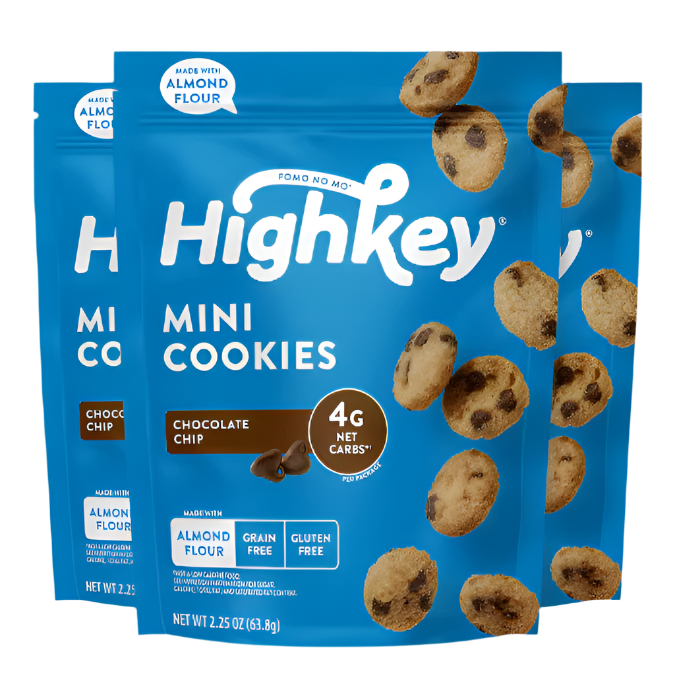Vegan Diet Health Benefits & Risks
Vegan Diet Health Benefits & Risks: Going Vegan
Lindsay Malone MS, RDN, CSO, LD
IN THIS ARTICLE
- Health Benefits of a Vegan Diet
- Benefits of a Vegan Diet On the Body
- Do You Lose Weight on a Vegan Diet?
- Benefits of a Vegan Diet for Athletes
- Benefits of a Vegan Diet On the Environment
- Risks of a Vegan Diet
- Plant-Based and Vegan Are Not the Same
Health Benefits & Risks of Going Vegan
08-14-20
Is a vegan diet healthy? Do you lose weight on a vegan diet? Can you lose belly fat on a vegan diet? These are common questions I get every week from people searching for a healthier lifestyle. But how does a vegan diet measure up?
Health Benefits of a Vegan Diet (Broad list of benefits)
A vegan diet has numerous health benefits. According to multiple observational and intervention studies a vegan diet (*,*,*):
- Lowers risk of chronic health issues including heart disease, diabetes, obesity, cancer
- Improves gut health, including digestion and gut bacteria
- Reduces inflammation
- Provides phytonutrients and antioxidants to heal and protect cells
Benefits of a Vegan Diet On the Body
A vegan diet contains 100% plant foods. Because of this, it is likely the most nutrient-dense style of eating out there. Nutrient density refers to nutrients per calorie. If you consider all foods, plant foods have the highest nutrient density, with leafy greens, vegetables, beans and fruits leading the pack.
Notice Oreos aren’t on the chart even though they are vegan. More on that later. The nutrients in plant foods provide a wide range of health benefits to the human body.
Fiber
Fiber is a non-digestible carbohydrate that supports healthy gut function, improves satiety (fullness), keeps blood sugar stable and supports our body’s detoxification process.
Most plant foods are high in fiber, so it’s no surprise that eating a vegan diet often results in:
- Regular bowel movements
- Feeling full while eating fewer calories
- Experiencing a stabilization of energy and mood (due to blood sugar regulation)
Phytonutrients
Phytonutrients are plant compounds that are not yet considered essential but provide massive health benefits. I’m sure you’ve heard of lycopene in tomatoes and resveratrol in red wine; these are phytonutrients. The job of these super nutrients is to protect and repair cells that are damaged. Scientists suspect this is why a whole-food, plant-based diet (like the vegan diet) reduces cancer risk and prevents premature skin aging (*,*).
Vitamins and Minerals
Due to the nutrient density of plant foods, a vegan diet, when designed for health, is high in several vitamins and minerals, including:
- Potassium
- Magnesium
- Vitamin C
- Vitamin E
- B vitamins
- Vitamin A
- Zinc.
These nutrients play a central role in hydration, energy metabolism, relaxation and immune function.
A Vegan Diet Designed for Health
Like keto, a vegan diet can be designed with nutrient density and health in mind or filled with junk. Many processed, low nutrient foods are vegan. Take a look at a variety of vegan foods that are either completely void of nutrients or very low:
- Soda
- Sugar
- Pretzels
- Potato chips
- White bread
- Frosted Flakes
- Saltine crackers
- Graham crackers
- Oreo cookies
The point is, just because something is vegan doesn’t mean it’s healthy. A well designed vegan diet includes mostly whole, minimally processed plant foods. And, even then, special attention should be paid to critical nutrients that are less available from plant foods, including:
- Calcium
- Vitamin D
- Iron
- Protein
- Vitamin B12
It is possible to get these nutrients from a vegan diet; it just requires a little planning.
Research has shown the health benefits discussed in this article are not generalizable to all vegan diets but apply to those primarily comprised of whole, minimally processed plant foods (*).
Do you lose weight on a vegan diet?
Let’s dive into the most popular topic – weight loss and belly fat. You can lose weight and belly fat on pretty much any whole foods diet, whether that’s paleo, keto, pegan, vegan, omnivorous or vegetarian. For sustainable weight loss and long term health, the key with any approach is:
- Achieving a small, sustainable calorie deficit (eating fewer calories than you burn)
- Controlling blood sugar, spikes in blood sugar make fat storage more likely and fat burning less likely. Elevated blood sugar and insulin (the hormone that manages blood sugar) are associated with central adiposity (aka belly fat).
Achieving a calorie deficit and controlling blood sugar is easier when you include whole plant foods (*). While plants are high in nutrient density, they tend to be low in energy density. Energy density refers to calories based on volume. To illustrate this concept, imagine a plate piled high with 400 calories of broccoli vs. 400 calories fried chicken – maybe one piece of chicken compared to 6 cups or so of broccoli.
The volume of food eaten drives satiety, just like fiber does. Because whole plant foods generally have a lower energy density, you can eat a large volume with relatively few calories. Of course, there are exceptions to this rule, like avocados and nut butter. If you eat a variety of whole plant foods, you’re likely to take in many of the filling, low-calorie options, too, like broccoli, berries, sweet potatoes and leafies.
Benefits of a Vegan Diet On the Skin
A well designed vegan diet may help clear skin and prevent premature aging.
Let’s take a look at acne first. Research has established a few dietary factors connected with breakouts that are mostly eliminated during a whole-food, plant-based diet (*):
- Dairy: milk, cheese, yogurt
- High glycemic foods: soda, fruit juice, white sugar, flour
- Inflammatory foods: fried foods, pies, pastry
There are plenty of personal accounts of acne clearing up on a plant-based diet, but the same goes for keto, carnivore, no oil, Mediterranean, etc. The one thing that these diets have in common (when they are done by the book) is that they are whole food-based (i.e., no processed junk). This may be more important than eliminating animal foods.
What about aging? Aging is accelerated by inflammation and free radical damage. Free radicals are compounds that damage cells – think UV rays, cigarette smoke, pollution, etc. A vegan diet is high in antioxidants and has been shown to reduce premature aging (*).
Benefits of a Vegan Diet for Athletes
Many athletes mistakenly think a vegan diet with hampering their performance or limiting muscle building, but this is not true. Well-designed vegan diets provide many benefits to athletes and gym enthusiasts alike, including (*):
- A whole foods vegan diet reduces inflammation. Inflammation is known to cause pain and impair athletic performance and recovery.
- Vegan diets improve arterial flexibility and diameter, leading to better blood flow. Better blood flow means the muscles and the central nervous system have the oxygen and nutrients required for optimal performance.
- Vegan diets provide more antioxidants and phytonutrients to prevent cellular damage caused by free radicals. Free radicals lead to muscle fatigue, reduced athletic performance, and impaired recovery.
Benefits of a Vegan Diet On the Environment
Beyond health, a vegan diet is also good for the environment. Food is responsible for a large portion of greenhouse gases contributing to climate change. A diet high in animal protein produces more greenhouse gases than a plant-based diet. Gases are produced from (*):
- Livestock grazing
- Farm machinery
- Transportation and storage
- Cooking
Of course, you’ll have some gas production from plant foods but much less than an animal-based diet. However, there are other factors. Just like nutritional quality can vary between two people eating vegan, environmental impact can vary as well. The environmental impact of any diet can be reduced by eating local and seasonal and cutting down on unnecessary food packaging.
Risks of a Vegan Diet
There aren’t many risks to a vegan diet if it’s done correctly. As previously noted, some nutrients should be monitored to ensure nutritional adequacy, including:
- Vitamin B12
- Protein
- Calcium
- Vitamin D
Individuals with digestive health issues may find a fully vegan diet exacerbates their symptoms. A vegan diet can be higher in fermentable carbohydrates (FODMAPS), known to increase digestive distress like gas, bloating and constipation in sensitive individuals. Animal proteins are often a well-tolerated category of foods that provides essential nutrients for this population. A more tailored approach may be necessary to follow a vegan diet while keeping symptoms at bay.
Plant-Based and Vegan Are Not the Same
If you’re still on the fence, don’t worry, you’re not alone. Being a vegan isn’t required for a healthy body or a healthy planet. Most of the same benefits are realized by eating a mostly plant-based diet filled with whole, minimally processed plant foods. Layer on eating locally and seasonally, and you have a sustainable, realistic style of eating that works for most people for the long haul.
Lindsay Malone, MS, RDN, CSO, LD
Lindsay Malone is a Functional and Integrative Medicine dietitian empowering individuals to take charge of their health with evidenced-based nutrition information.


